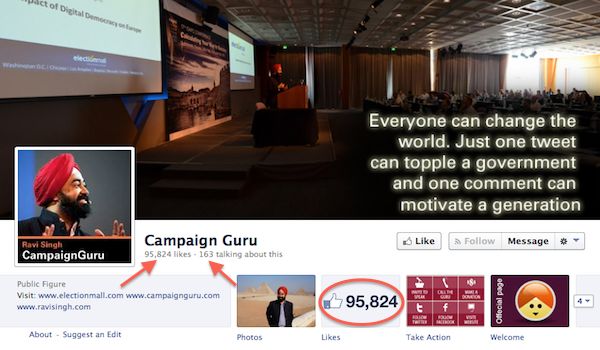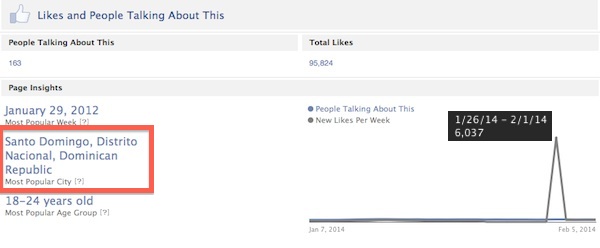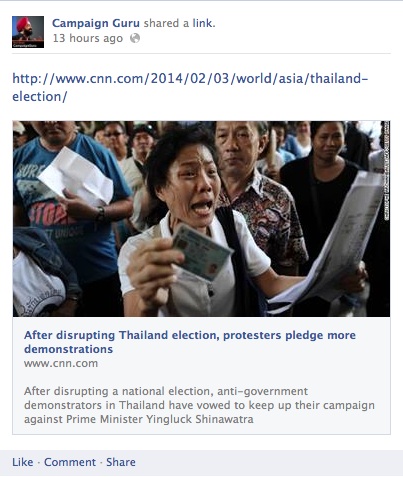Republican Party Wastes Big Dollars on "Expert" Online Consultants

Caught in the middle of San Diego’s most recent political scandal is Ravneet “Ravi” Singh, the owner of ElectionMall Inc., who is being charged with funneling over $500,000 in illegal foreign money to San Diego candidates.
Ravi Singh has become a familiar face at political events, working on digital strategies for political campaigns throughout the nation.
His largest client has been, and remains to be, the California Republican Party (CRP), who hired him in 2012 to host their first “Social Media Training Workshop” at the party’s state convention.
Admitting to a deficiency in digital and social strategies, the CRP hoped that training in cloud computing and social media would bolster support in time for the 2012 election.
Instead, the California Democratic Party captured a supermajority in both the Senate and the Assembly.
Is Ravi Singh’s digital consulting to blame for the declining presence of the Republican Party in California politics? No, but the fact that they can be fooled into spending big dollars on 'expert' consultants like Singh’s company, ElectionMall, is an indication that they should do a better job of vetting new strategic partners.
While ElectionMall’s slogan reads “Helping Campaigns WIN via technology since 2000,” one look at Ravi Singh’s professional social media accounts reveals that his strategies epitomize exactly what not to do to win elections.
Dubbing himself the “Campaign Guru” on Facebook, there are three glaring mistakes in the execution of his own strategies on Facebook.

The “Talking About This” number refers to number of users who are engaged with a Facebook Page. This is the number of people who actually interact with a Page after they hit the “like” button. It could be liking a post, sharing a status, or reading an article posted. This number is much more indicative of a Page’s success because it measures how successful the Page's message is being delivered to the desired audience.
For Singh, about 0.2 percent of his followers actually engage on his Facebook Page. What this reveals is that the majority of Singh’s "Likes" are either fake or paid for.
This is not how you win elections.
An effective Facebook strategy emphasizes quality, not quantity, when it comes to drafting Facebook posts. Users are bombarded by information, so adding something of value is becoming increasingly important on Facebook.
With Facebook’s new algorithm, if your post does not get traction early on, Facebook will not continue placing it in the newsfeed.
Take a look at a recent post made on Singh’s wall (pictured left). It may be an informative article, but no one knows why or how it relates to them.
There is no context, no call to action, and consequently, no interaction.
This is not how you win elections.
In most campaigns, Facebook is used as a means to reach potential voters, build name recognition, answer constituent questions, and share updates from the campaign.
While it is not uncommon to use Facebook Ads to gain Likes from targeted users, this strategy should result in an increased “Talking About Number.”
A closer look at the Campaign Guru’s “Likes and People Talking About This” chart shows a sharp increase in “Likes” between 1/26-2/1, while the Talking About number remains the same.

It is unlikely that this 6,000+ jump in likes over the course of just 5 days was the result of paid advertising strategies within the network, and were likely outsourced.
Also note that the most popular city for his Facebook “Likes” is Santo Domingo, Dominican Republic. When the majority of his clients are American politicians, it is likely his likes were purchased through foreign agencies.
This is not how you win elections.
This election cycle, Singh’s company has already received $63,142 from the California Republican Party.
Other clients include 10 congressional campaigns (all Republicans), the Republican Party of Minnesota, and the New Hampshire Republican State Committee, data provided by the Sunlight Foundation reveals.
Nationwide, the Republican Party trails the tech-savvy Democratic Party in online media, which has had lasting effects on the outcome of both presidential and statewide races. Facebook can no longer be ignored, so why is the California Republican Party still paying tens of thousands of dollars on consulting advice that doesn't work?






